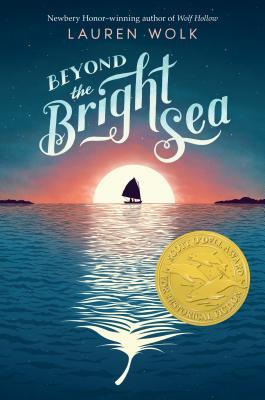It's been a week of reading for me---and not a lot else. Haha! Can't complain...but probably shouldn't brag either. Besides all this reading this week, I've also been going through a chronological Bible study with friends. Too bad the rest of my physique isn't getting the same work out as my eyes...
But on to the books... First up, Beyond the Bright Sea by Lauren Wolk:
This was a truly beautiful story.
I don't usually read a lot of children's or teen fiction, but lately I've kind of been on a kick. Part of me wants to show myself that not all fiction written for kids lately is demonic indoctrination as I often hear, left and right, from some conservative sources.
Beyond the Bright Sea is simply the story of a confident and wise young girl who is looking for information on her birth parents. Crow was adopted as an infant and, as a young teen, discovers clues about her origins. She begins a search for information, rather than identity, and that's what makes this story so sweet. She already knows who she is and what she finds out further cements her good character, rather than changing it. With a little adventure and a little perilous action thrown in, this is the perfect story for my middle grade kids.
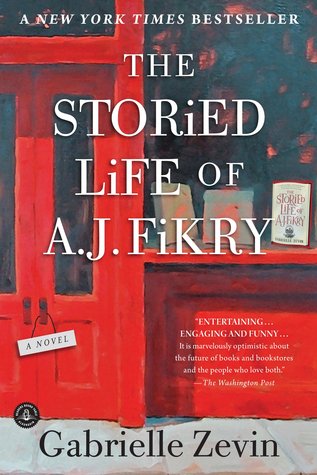
Book Description: "A.J. Fikry's life is not at all what he expected it to be. He lives alone, his bookstore is experiencing the worst sales in its history, and now his prized possession, a rare collection of Poe poems, has been stolen. But when a mysterious package appears at the bookstore, its unexpected arrival gives Fikry the chance to make his life over -- and see everything anew."
One afternoon last week, I purchased this book, came home and changed into pajamas, went straight to bed, and read the whole thing through without stopping. Wow, three “full star ratings” in a row—am I getting soft?
My initial thoughts of A.J. 10 pages in is that he doesn’t necessarily want to be right in a conversation, just understood. I've discovered this about myself lately and recognize it in him. If he doesn't feel like he will be understood, he doesn't think the relationship is worth the time.
Almost 20 pages in, he is bitingly sarcastic with an officer after the death of his wife. What strikes me is that, in the middle of the conversation about his "grand saga", he realizes the officer also has a life outside of the role he's playing at the moment. He says maybe he is, instead, a part of the “grander saga” of the officer's life. Yes! We’ve got to get outside ourselves and see that some of our experiences, good and bad, are not about us but about the growth of others.
43 pages in, I thought: Who is this author? He/she really gets people. (looks to the bio info in the back) Oh, it’s a she. A young she. Very impressive.
The book was a gut check for me in a few ways. Here's one that had me stopping to choke back tears for a minute: "It's the secret fear that we are unlovable that isolates us, but it is only because we are isolated that we think we are unlovable."
Another good quote: “Sometimes books don’t find us until the right time.”
If there's any fault in the story line, it's that A.J.'s transition from crochety, difficult person to gentle, soft person seems too instantaneous. There doesn't seem to be a growing stage and no real change after moving to that new stage. However, this would have made for a longer book and I enjoyed the brevity of this one. Still, being the main point of the whole story, it seems surprising that he flips like a switch.
Content warning: strong but scattered profanities; non-descriptive sex scenes
This book meets the following challenges: The Alphabet Soup Challenge for the letter "S", and the Brighter Winter Reading Challenge for "read a book outside your comfort zone". (This book was outside my comfort zone because I normally would have stopped after the above-mentioned content warnings---but I went ahead and finished because I thought there was some good writing underneath.)
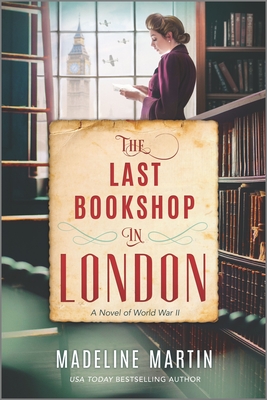
A protagonist in a bookshop who doesn’t love books…that’s new…
When Grace and her friend Viv set out for London, they could never have imagined they were about to live through one of the most devastating experiences in the city's history. Viv works her dream job while Grace is hired in a position that is not necessarily her cup of tea. However, she finds out it's exactly where she needed to be at the time.
I usually avoid stories that take place during war time because I have three sons ages 18-21 and the thought of them all getting drafted up in the near future freaks me right out. This was a difficult story to read in that sense, but it had some pretty amazing parts too and I learned a lot about this time in history. (Downside of my fearful avoidance is that I don't know much about the history of modern wars...)
I felt like the writing fell short more often than not as the author struggled to write natural sentences that people would speak naturally. I don't know how to really describe what I'm getting at but so much of it had that Victorian flowery formality---like Louisa May Alcott (is it for kids? is it for adults?)---that made it hard to really relate to anyone. I think part of it was that it was obviously an American trying to write about a culture she's probably mostly experienced through TV and movies. I would have really loved to have read more about the books Grace was reading and selling---rather than just mentions of the same obvious classics. Like American bookstores, British bookstores are packed with lots of different books from lots of different authors and eras, and classics make up a tiny minority of the offerings. Clunky dialogue clashed with some pretty vivid descriptive writing of scenes and situations to make something I'm glad I read but probably wouldn't read again.
This book meets the following challenges:
TBR Challenge,
The Alphabet Soup Challenge for authors for the letter "M",
The Historical Fiction Reading Challenge, and the
Brighter Winter Reading Challenge for "read a book in which a main character is 60+".
Someone else's jaded fan-boy description: "Every so often, a pairing comes along that seems completely unlikely--until it's not. Peanut butter and jelly, Dennis Rodman and Kim Jong Un, ducks and puppies, and now: Dickens and Prince. Equipped with a fan's admiration and his trademark humor and wit, Nick Hornby invites us into his latest obsession: the cosmic link between two unlikely artists, geniuses in their own rights, spanning race, class, and centuries--each of whom electrified their different disciplines and whose legacy resounded far beyond their own time."
I can appreciate the sentiment that the author has for these two artists, but I can't say that he made a special case for unique similarities between the two. Both were prolific, both were poor...and? The author is quick to point out many other artists share these similarities—-so the point of the book is??? The truth is, there’s nothing significantly unique that links these two together that couldn’t be said of zillions of other celebrities that could be inserted into place instead.
I also get annoyed when an author spends too many words quoting the words of others---especially in such a short work. And speaking of words, the comparison between the two artists’ contribution of words falls flat when you ask the question, what did their words actually contribute to society? In short, Dickens’ words sparked permanent social reform, including child labor laws, in both England and the US. Prince gave us the recorded orgasms of his ex-girlfriend.
Not a fan.
That's a wrap---what are you reading?




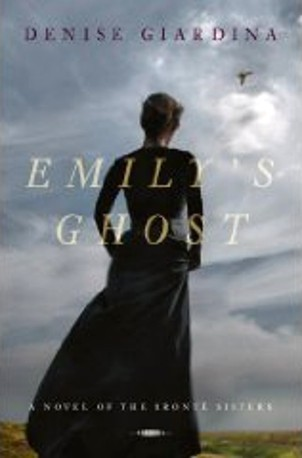

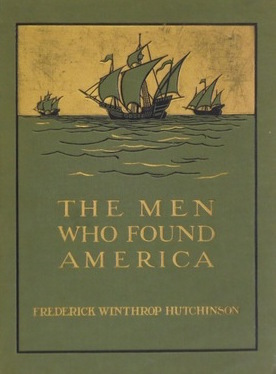






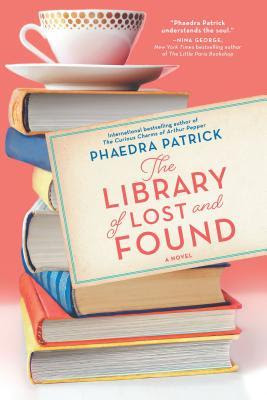

.jpg)

